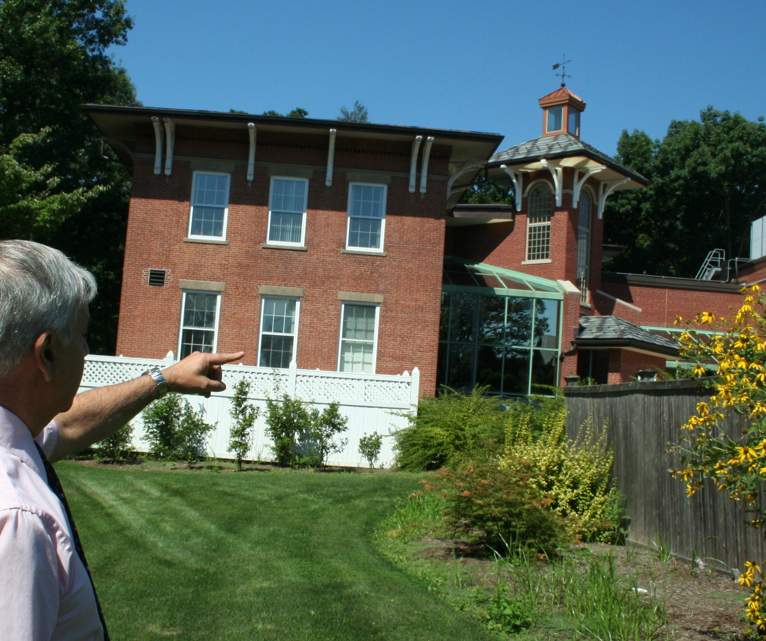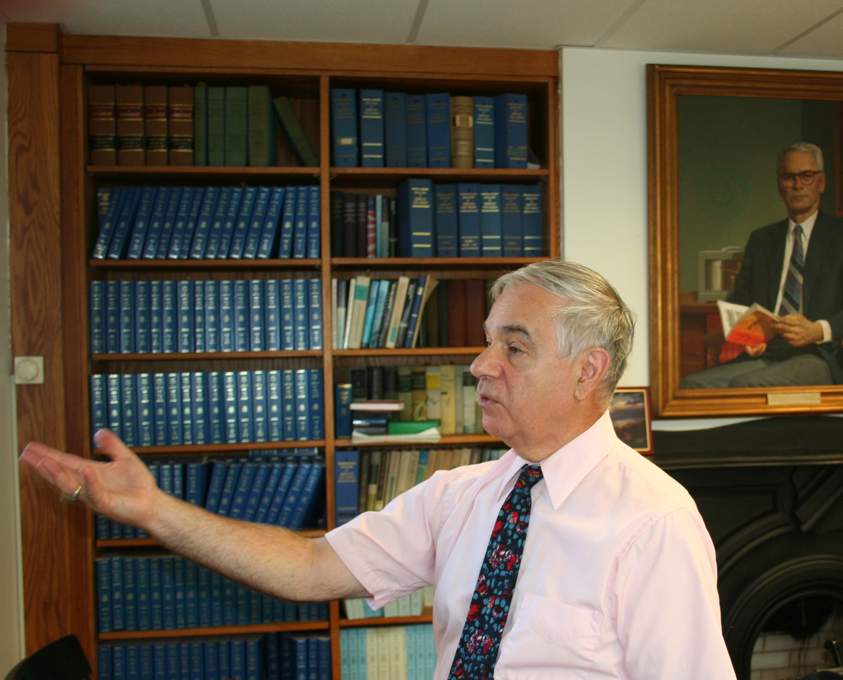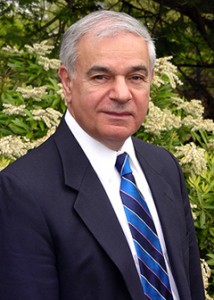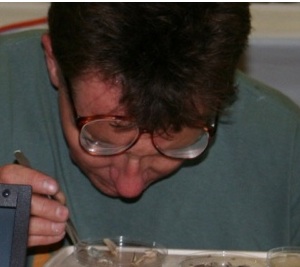‘Science Works For Society’ – CT Ag Station

The natural world is intricate. Studying one organism means tapping into the wealth of combined scientific knowledge to “see” the interplay between such creatures as white-footed mice, deer plus land use patterns over time and human behavior to understand a surge in tick-borne diseases. It can involve harnessing fungi as a biological control for black-legged ticks. There is a place where scientists study grapes and plant disease (such as tomato blight) as well as the hemlock woolly adelgid, an invasive aphid-like insect that decimates hemlock trees. Mosquitoes collected at 90-plus sites around the state are screened for Eastern Equine Encephalitis (EEE), West Nile and other viruses.
These are pages from volumes of investigative science at the Connecticut Agricultural Experiment Station, the first such facility in the U.S., established in 1875 to investigate “plant and their pests, insects, soil, and water.”
“A Yale chemist by the name of Samuel W. Johnson had traveled to Germany and saw the experimental research system over there and came back and said this is what we need,” said Dr. Louis Magnarelli, director at the station. “He got the Connecticut legislature and the governor to initiate the first agricultural experiment station. Now, every state has at least one.”
Food safety research is an important component. Analytical chemistry works with the USFDA in testing seafood for petroleum-related chemicals, which include fish, shrimp, oysters and crabs in the Gulf of Mexico. Connecticut was one of three labs in the country involved when the disaster happened.

“What's happened here in Connecticut and in many other areas of the country and even in Europe, is that about 200 years ago, we had predominately agricultural land with forest that had been cleared for farming. As small farms disappeared and large farms began commercially producing our food, the forests came back. With that came an increase in the white-tail deer, and an increase in ticks. We have a relatively high attack rate per 100,000 people, among the highest in the country. It's because people are entering tick-infested areas or they live near tick-infested areas.”
Dr. John Anderson, a previous director, and Magnarelli started the tick research program back in 1977.
“Rocky Mountain Spotted Fever was the first disease that we worked on,” he explained. Babesiosis, caused by a protozoan organism transmitted by the deer tick, went under scrutiny next, then Lyme disease.
“Lyme disease is debilitating and can cause arthritis, even cardiac problems. Antibiotic treatment is effective when given early. Treatment is more difficult in the later stages. Often times it is very difficult to diagnose.”
 From state (www.ct.gov) biographies page: Dr. Magnarelli’s research specialty is medical entomology and his expertise covers mosquitoes, ticks, Lyme disease, Rocky Mountain spotted fever, human and canine ehrlichiosis, anaplasmosis, babesiosis, tularemia, and serologic testing for antibodies to pathogens transmitted by ticks and mosquitoes. To improve laboratory diagnosis of tick-associated diseases, highly specific reagents are being produced by collaborating scientists at Yale University and the University of Texas (Houston) and are being tested at The Connecticut Agricultural Experiment Station to develop highly sensitive and specific assays for antibodies. Emphasis is also being placed on monitoring tick-borne infections and West Nile virus activity in horses, dogs, cats, cattle, and in wildlife (deer and rodents).
From state (www.ct.gov) biographies page: Dr. Magnarelli’s research specialty is medical entomology and his expertise covers mosquitoes, ticks, Lyme disease, Rocky Mountain spotted fever, human and canine ehrlichiosis, anaplasmosis, babesiosis, tularemia, and serologic testing for antibodies to pathogens transmitted by ticks and mosquitoes. To improve laboratory diagnosis of tick-associated diseases, highly specific reagents are being produced by collaborating scientists at Yale University and the University of Texas (Houston) and are being tested at The Connecticut Agricultural Experiment Station to develop highly sensitive and specific assays for antibodies. Emphasis is also being placed on monitoring tick-borne infections and West Nile virus activity in horses, dogs, cats, cattle, and in wildlife (deer and rodents).

